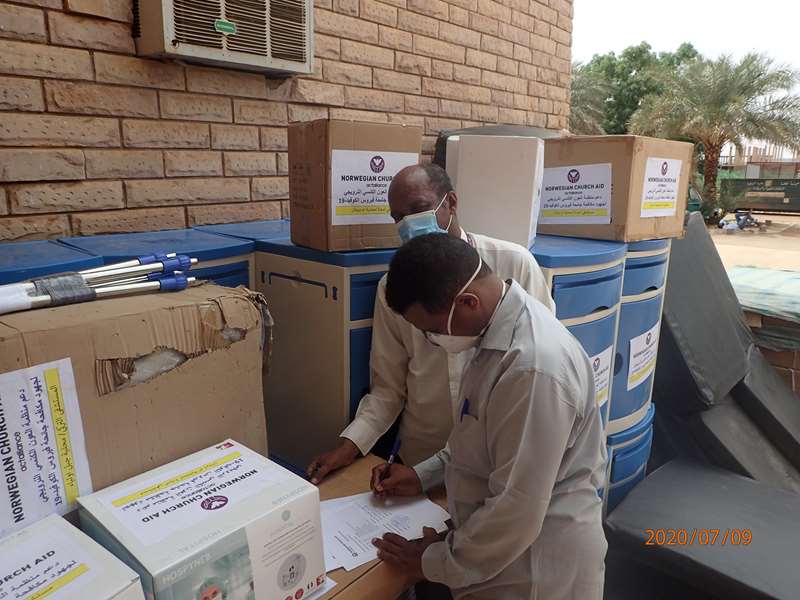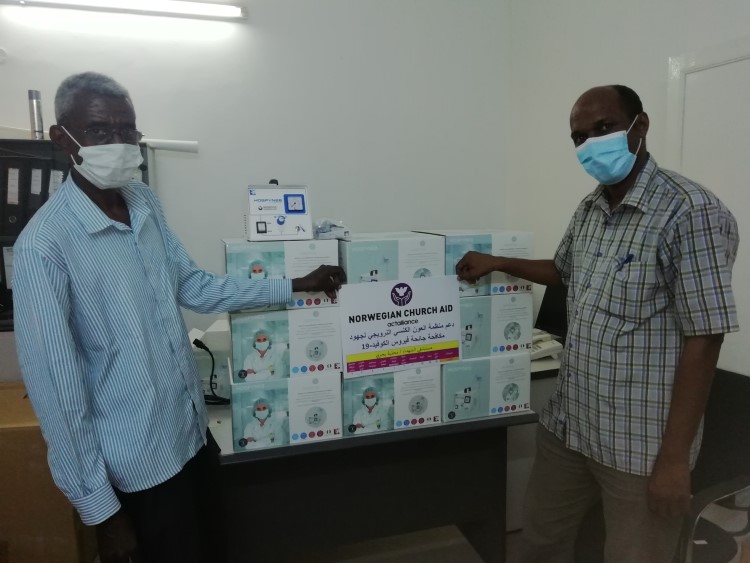Blogg-liste
Over 10 million people are now at risk of contraction water-bourne diseases
In NCA’s first year as a member of the Sudanese Joint Response (SDNJR), NCA-ICCO were able to swiftly step in and support the Ministry of Health (MoH) with a life-saving COVID medical response. The response typically tracks and targets humanitarian emergencies in the sectors of WASH, Protection - Children and the combatting of Gender-Based Violence, Food Security and Livelihoods, and Health in the neediest of states (North and East Darfur, South Kordofan). It is funded annually by the Government of The Netherlands – Ministry of Foreign Affairs (MFA).

Longer term effect
Months later and as the country grapples with the immediate and longer term effects of unprecendented once in a 100-year flooding, the strategic placement of equipment and supplies in medical institutions in Khartoum and South Kordofan is set to save further Sudanese lives. These unintended and positive consequences become very real in post-flood recovery when one considers that over 10 million people are now at risk of contracting water-borne diseases, and more than 4.5 million are exposed to vector-borne diseases, an increase of nearly 100 per cent if compared with April 2020. Malaria cases have increased in seven localities of North Darfur and different parts of Sennar State. West Darfur reported nearly 100 cases of chikungunya, and hundreds of cases of viral haemorrhagic fever have been reported in Northern, River Nile, Kassala, Khartoum, Sennar and West Kordofan states. Isolation centres established and equipped under NCA’s COVID-19 response are available to treat flood related disease outbreaks.
Adaptive Management through Collaborative
The SDNJR is an innovative and highly flexible consortium approach led by Plan International. NCA and World Vision make up the trio of collaborating INGO’s implementing through and with local Sudanese partners. Demonstrating highly adaptive management, through MFA and Plan International, SDNJR and NCA-ICCO pivoted early in the COVID-19 pandemic to the most populous Khartoum state with additional and dedicated emergency response funding in support of MoH. The captial city consistently recorded 70 per cent of infections country-wide.
Whilst under a strict pandemic lockdown regimen, NCA Khartoum initiated the challenging task of calling for tenders for medical equipment, supplies and personal protective equipment (PPE). Other key COVID-19 health activities included supporting sufficient technical and operational capacities to detect, contain and treat the virus; support training on case management, infection, prevention and control (IPC); and support the strengthening of health system and response to the pandemic through close coordination and collaboration with relevant local authorities – MoH, Humanitarian Aid Commissions, Humanitarian Country Team, WHO and other key UN agencies. COVID-19 WASH activities centred on risk communication and community engagement especially hand-washing and personal hygiene.
Critical Success Factors
Outstanding features the SDNJR COVID-19 emergency response are: It was put to the test, MFA and consortium members responded accordingly and appropriately - all of which proved to be relatively successful within unparalleled times and circumstances. The teamwork and coordination, across all participating members and actors, was noteworthy with most institutions working remotely, under lockdown and under severe information and communication contraints. Finally, the response equipped 6 hospitals in Khartoum and primary health clinics in Abu Jubaiha and Talodi (South Kordofan) with much needed medical equipment and supplies at a time when the MoH is severly stretched and resource impoverished. Health institutions are now better placed to manage disease outbreaks as a result of SDNJR preemptive actions taken months earlier during the COVID-19 response.

